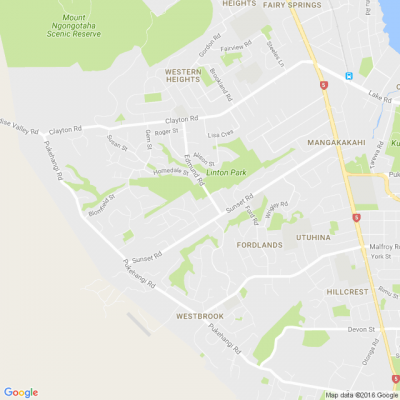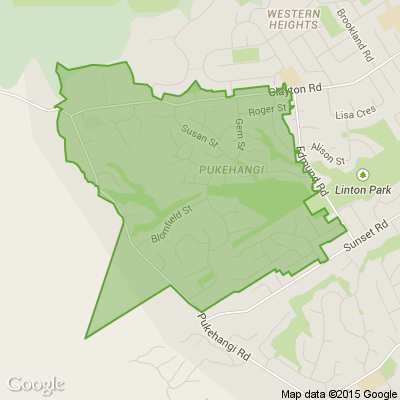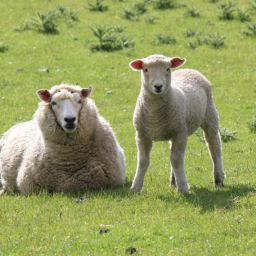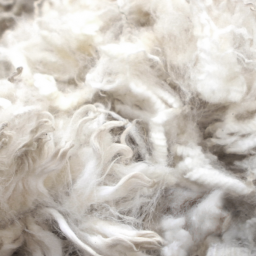Wool is 100% Biodegradable
HOW DOES WOOL BIODEGRADE?
All materials of animal and vegetable origin have some degree of biodegradability, meaning that they are capable of being decomposed by the action of living organisms, such as fungi and bacteria. Wool is composed of the natural protein keratin, which is similar to the protein that makes up human hair. When keratin is broken down naturally by microorganisms, the products do not pose any environmental hazard.
WOOL READILY BIODEGRADES IN MOIST, WARM CONDITIONS
On disposal, if wool is kept warm and moist or buried in soil, fungal and bacterial growths develop which produce enzymes that digest wool. On the other hand, thanks to the unique chemical structure of keratin and wool’s tough, water-repellent outer membrane, clean and dry wool fibres do not readily degrade. This allows wool products to be resilient and long-lasting in normal conditions.
WOOL BIODEGRADES QUICKLY
Wool biodegrades readily in as little as three to four months but the rate varies with soil, climate and wool characteristics. This releases essential elements such as nitrogen, sulphur and magnesium back to the soil, able to be taken up by growing plants. Some studies found more rapid degradation after only four weeks’ burial in soils. Research has shown that processing treatments such as dyeing and anti-shrink treatment can affect the rate of biodegradation in soil, causing an increase in the initial resistance of wool fabric to degradation. However, this is a short-term effect, typically not persisting beyond eight weeks.
WOOL RETURNS ESSENTIAL NUTRIENTS TO THE SOIL
On burial in soil, wool becomes a slow-release fertiliser providing nutrients for uptake and growth by other organisms. Some have even used wool fertiliser to foster herb and vegetable growth. This is known as natural closed loop recycling; restoring the initial inputs of soil and grass. Other beneficial effects of adding wool to soils include enhanced water holding capacity, improved water infiltration, soil aeration and reduced erosion. Ground-up wool carpet, when used as a fertiliser, increased the dry matter yield of grass growth by 24% to 82%.
WOOL DOES NOT ADD TO LANDFILL VOLUMES OR MICROFIBRE POLLUTION
Natural fibres biodegrade naturally in a relatively short period in soils and aquatic systems and therefore do not accumulate in landfill and oceans. Results from a University of Canterbury study demonstrate that wool degrades in a marine environment. In contrast, synthetic textiles persist for many decades and can disintegrate to small fragments. Commonly known as microplastics, or microfibres when less than 5mm in diameter, these fragments accumulate in aquatic environments and land disposal sites where they have negative effects on ecosystems when consumed by organisms. A single polyester fleece garment can produce more than 1900 fibres per wash. Ingestion has a negative impact on organisms, sometimes causing death through starvation as plastic replaces food in the stomach. Once in the food chain, microplastics potentially also affect human health via seafood consumption.
At Curtain Clean we are all about minimising waste and reducing the amount of uncompostable materials going into landfill. Keep in mind that a lot of fabrics can be washed and don't need to be thrown away! Call us on 07 579 0501 if you have something you'd like cleaned, we can treat almost all fabrics.
Poll: Should the government levy industries that contribute to financial hardship?
As reported in the Post, there’s a $30 million funding gap in financial mentoring. This has led to services closing and mentors stepping in unpaid just to keep helping people in need 🪙💰🪙
One proposed solution? Small levies on industries that profit from financial hardship — like banks, casinos, and similar companies.
So we want to hear what you think:
Should the government ask these industries to contribute?

-
60% Yes, supporting people is important!
-
25.7% No, individuals should take responsibility
-
14.3% ... It is complicated
Fundraining for Bowl Cancer
Hi,
This February, I am taking part in Move your Butt for Bowel Cancer and will be conquering 200km for the 100 Kiwis who die from bowel cancer every month.
My goal is to raise funds for Bowel Cancer NZ to support patients, raise awareness and fund research to beat bowel cancer.
Please sponsor my challenge and support my efforts to save Kiwi lives.
To make a donation, simply visit my personal fundraising page below:
www.moveyourbutt.org.nz...
Thanks so much for your support.
Roydon
Poll: Could having a bigger university presence bring new opportunities and energy to the Bay of Plenty?
As reported in The Post, the University of Waikato is planting roots in Tauranga as it works on “ambitious plans” to grow its Durham St campus. The goal? To see Tauranga recognised as a true “university city.”
We want to know: Could having a bigger university presence bring new opportunities and energy to the region? We’d love to hear your thoughts!

-
58.3% Yes!
-
25% Nah
-
16.7% Mmm, let's wait and see









 Loading…
Loading…